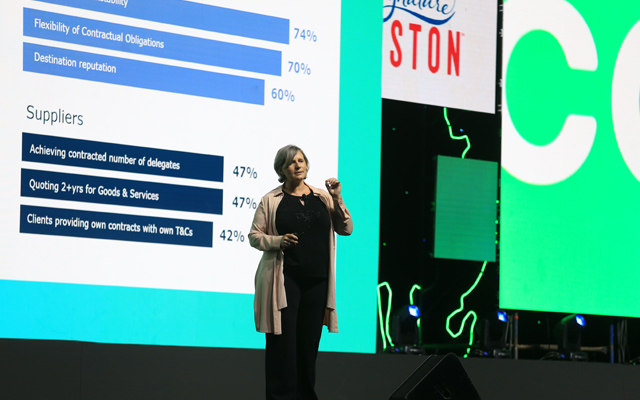From natural disasters to contractual challenges, risk is an inherent part of planning and hosting in-person events, and it plays a major role in helping buyers and suppliers decide on a destination or provide RFPs.
During the Is Our Business a Risky Business? session during last week’s 62nd ICCA Congress, Bettina Reventlow-Mourier, deputy convention director, Wonderful Copenhagen, pointed out that the sector “underestimated the consequences” that the pandemic left on the meetings industry.

As such, to create greater mutual understanding and awareness of selected risks and risk scenario, the Copenhagen Convention Bureau launched a risk assessment whitepaper in September 2023.
The paper’s survey results confirmed that risk plays a major role in organisational decisions for both buyers and suppliers. While 98 per cent of buyers responded that risk, in general, influences their organisation’s decision to select a host destination and suppliers, 100 per cent of suppliers said that risk has at least some influence on their organisation’s decision to quote for an event or conference.
Among the risks that were of concern to buyers interviewed for the paper are travel restrictions, destination technology infrastructure, inflexible supplier contracts, and regional and global instability. For suppliers, risks were related to client demands for flexibility in contracts, flexibility on delegate numbers, workforce retention, acquisition, and overall budget management.
One potential solution, Reventlow-Mourier suggested, is the concept of risk sharing across partnerships through transparent dialogue, sliding scales for room blocking and catering, and legal support to navigate complex contracts.
“To build a holistic approach, we need to intensify our dialogue, share best practices, and engage in risk discussions. We also need to get advice from risk management professionals, and develop tools that contribute to an overall code of conduct. It can be difficult to mitigate what we don’t know,” she concluded.





















